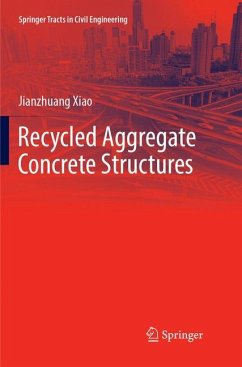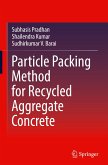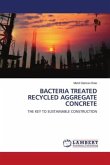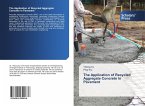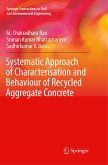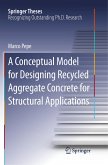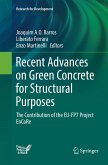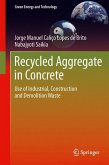This book describes how, given the global challenge of a shortage of natural resources in the 21st century, the recycling of waste concrete is one of the most important means of implementing sustainable construction development strategies.
Firstly, the book presents key findings on the micro- and meso-structure of recycled aggregate concrete (RAC), while the second part focuses on the mechanical properties of RAC: the strength, elastic modulus, Poisson's ratio, stress-strain curve, etc. The third part of the book explores research on the durability of RAC: carbonization, chloride penetration, shrinkage and creep. It then presents key information on the mechanical behavior and seismic performance of RAC elements and structures: beams, columns, slabs, beam-column joints, and frames. Lastly, the book puts forward design guidelines for recycled aggregate concrete structures.
Taken as a whole, the research results - based on a series of investigations the author has condu
cted on the mechanical properties, durability and structural performance of recycled aggregate concrete (RAC) over the past 10 years - demonstrate that, with proper design and construction, it is safe and feasible to utilize RAC structures in civil engineering applications. The book will greatly benefit researchers, postgraduates, and engineers in civil engineering with an interest in this field.
Firstly, the book presents key findings on the micro- and meso-structure of recycled aggregate concrete (RAC), while the second part focuses on the mechanical properties of RAC: the strength, elastic modulus, Poisson's ratio, stress-strain curve, etc. The third part of the book explores research on the durability of RAC: carbonization, chloride penetration, shrinkage and creep. It then presents key information on the mechanical behavior and seismic performance of RAC elements and structures: beams, columns, slabs, beam-column joints, and frames. Lastly, the book puts forward design guidelines for recycled aggregate concrete structures.
Taken as a whole, the research results - based on a series of investigations the author has condu
cted on the mechanical properties, durability and structural performance of recycled aggregate concrete (RAC) over the past 10 years - demonstrate that, with proper design and construction, it is safe and feasible to utilize RAC structures in civil engineering applications. The book will greatly benefit researchers, postgraduates, and engineers in civil engineering with an interest in this field.

